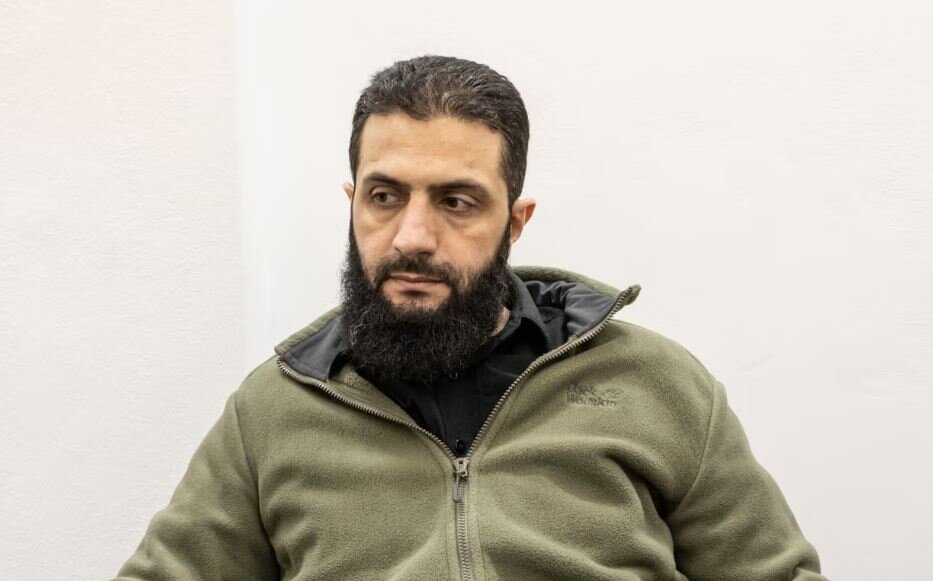By Soheila Zarfam
To build a state, the terror leader needs to appeal to Tehran despite his so far incendiary tone

THERAN – A Daesh and al-Qaeda affiliate began topping headlines in late November as he led a multi-national force of tens of thousands in a major offensive into Syria's northwestern Aleppo, exploiting the Syrian army's apparent lack of resistance and marking a new era of instability and uncertainty in the war-torn country.
The sprawling assaults by Mohammad al-Jolani's Hayat Tahrir al-Sham (HTS), joined by factions with equally troubling extremist roots, eventually led to the fall of President Bashar al-Assad’s government on Sunday.
Before launching his stunning offensive, Mohammad al-Jolani was known in the West as the head of a UN-designated terrorist organization and the target of a $10 million U.S. bounty. But the unexpected success of his attacks completely turned the tides. Western media now introduces him as a changed man who preaches pluralism and tolerance and wants nothing but peace for the Syrian nation.
The rapid shift in Western media narratives about al-Jolani, coupled with evidence of HTS and allied factions using advanced Turkish and American weaponry to seize cities abandoned by the Syrian army, suggests a level of pre-planning and coordination between the West and the new de facto rulers of Syria.
An ex-official of the Islamic Revolution Guard Corps (IRGC) Quds Force revealed that Iran warned Assad two months prior to the recent insurgency, letting the President know that the U.S. and Turkey were brewing something. It remains unclear whether Assad, now residing in Russia after receiving asylum, disregarded warnings of the impending attack or lacked the capacity to prepare his army for battle.
Nonetheless, Syria now faces a new and uncertain reality. While the diverse factions allied with al-Jolani over the past twelve days shared the common goal of removing Assad from power, their ability to establish the "institutional government" al-Jolani told CNN he wants to build remains in doubt, given their disparate ideologies and even nationalities.
Al-Jolani’s recent comments on Iran
Foreign policy will be a crucial aspect of any future government formed by the groups that have now taken over Syria.
While their leader al-Jolani has shown a conciliatory stance towards the West, his rhetoric regarding Iran remains inflammatory and provocative, even as he attempts to cultivate a more moderate image. The fact that he has lamented Iran on camera without making any comments about Israel’s new incursion into Syria, is another indicator of his deep ties with Western states.
In his message to the rebels after the announcement of Assad’s collapse, al-Jolani singled out Iran: “This new triumph, my brothers, marks a new chapter in the history of the region, a history fraught with dangers (that left) Syria as a playground for Iranian ambitions.”
Before that, he called on Iran on multiple occasions to stop its support for Assad.
Iran employed military advisors in Syria for over a decade at the request of the Syrian government. Those advisors spearheaded the fight against Daesh terrorists in both Syria and Iraq during the 2010s, terrorists known for globally infamous atrocities, including beheadings, torture, rape, and sex trafficking.
Al-Jolani may particularly harbor animosity towards Iran, rather than the occupier of his alleged birthplace, the Golan Heights, due to his links to Daesh or the support he has received from the West. However, if he succeeds in establishing a government, demonstrating a non-threatening stance towards Iran will be crucial.
“Iran is an important and influential country in the region. It especially has deep ties with many Syrians, who still remember Iran for helping the country root out Daesh,” said West Asia analyst Mohammad Reza Moradi. “Al-Jolani and his allies in Syria will likely attempt to establish ties with Iran. However, their success hinges on their ability to convincingly distance themselves from their history of terrorism.”
To achieve regional acceptance, the expert argued, HTS and its allies must prove they no longer pose a threat to other countries, mirroring the Taliban's experience.
“Just like how the world is scrutinizing the Taliban to see if they have changed their behavior, Iran and other countries will need some time to assess the potential future rulers of Syria. Until then, a normal functioning Syrian government would be impossible.”

No comments:
Post a Comment